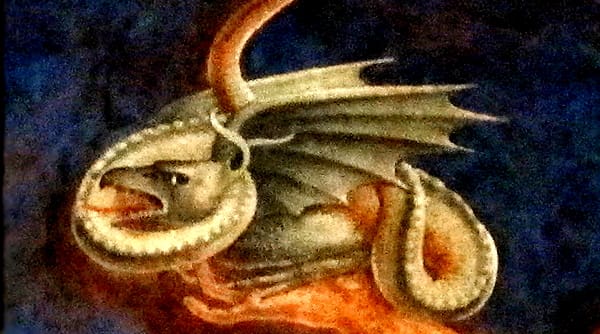 Dear Father John, I have been working on my prayer life consistently for a few years. During this time I have been on retreats and other similar activities. I have noticed a strange pattern: the conservative groups I have had contact with talk a lot about spiritual warfare, but the less traditionalist groups don’t. Until now, I haven’t paid much attention to the discrepancy. But lately I was wondering if maybe I should look into it – maybe understanding it better will help me grow spiritually?
Dear Father John, I have been working on my prayer life consistently for a few years. During this time I have been on retreats and other similar activities. I have noticed a strange pattern: the conservative groups I have had contact with talk a lot about spiritual warfare, but the less traditionalist groups don’t. Until now, I haven’t paid much attention to the discrepancy. But lately I was wondering if maybe I should look into it – maybe understanding it better will help me grow spiritually?
An earlier post addressed the fact of spiritual warfare: it is our normal state of being while we are still residents of this fallen world. The earlier post also explained that the arena of this warfare isn’t somewhere “out there,” but right inside our hearts. Our day-to-day decisions, how we respond to the most mundane circumstances, temptations, and opportunities, constitute the battlefield. When we choose what is good and right, we advance Christ’s Kingdom; when we choose what is self-centered and skewed, we deflect God’s grace.
Every war has two sides, and spiritual warfare is no different. In order for us to fight effectively, we need to identify the enemy. Spiritual writers have traditionally identified three enemies, actually: the world, the flesh, and the devil. Jesus himself pointed this out in his parable of the sower (Matthew 13). The sower sowed his seed in four different places, but that seed only bore fruit in one place. In the other three, the enemies stifled it.
Enemy #1: The World
Some of the seed fell in decent soil, but weeds (thorn bushes) grew up around it and choked it. The weeds didn’t kill the good plant; they just stunted its growth, they kept it from reaching its fulfillment. These weeds Jesus describes as the “cares of the world and the lure of wealth.” This corresponds to the first enemy, “the world.” The world as God created it was “very good” (Genesis 1:31), but its original harmony was shattered by original sin. Since then, both the physical world around us and also human society have been a mixed bag. The beauties of creation inspire us, but the forces of nature often batter us. The achievements of human culture can lift our hearts towards God, but the horrors of social injustice can throw us almost into despair. The basic direction of human society in this mixed bag of a fallen world tends to drag us towards an illusion, the illusion that with the right combination of material goods (wealth, power, reputation), we can achieve heaven on earth. Every day we are smothered with invitations to believe in this illusion: billboards, commercials, advertisements, books, movies, and the seductive pleasures all within arm’s reach whisper in our ears and draw us away from a Christ-centered life. This is enemy number one: the world.
Enemy #2: The Flesh
The seed sowed on the rocky soil started to grow, but it dried up in the hot sun – just as our good resolutions and desires often dry up when we realize that fulfilling them will involve self-discipline and self-sacrifice. This laziness and reluctance to follow Christ’s narrow way, this tendency towards egoism that resides within our very selves, corresponds to “the flesh,” enemy number two.
This term is often misunderstood in contemporary spiritual writings, and especially in the writings of those who are critical of Catholicism. Critics misinterpret “flesh” to mean “the body.” Our bodies are not our enemies. Our bodies are part of our human nature, created and redeemed by God. Jesus and Mary are in heaven right now, with their bodies.
In terms of the spiritual life, “flesh” refers rather to the self-centered tendencies of our fallen nature. It’s kind of a code word for these tendencies, which God in his wisdom allows to endure, even after baptism and even as we grow in holiness. These are the tendencies that lead us towards sin: greed, lust, sloth, gluttony… Another term for this is “concupiscence,” which the Catechism describes in #1264: “… an inclination to sin that Tradition calls concupiscence, or metaphorically, ‘the tinder for sin’ (fomes peccati); since concupiscence is left for us to wrestle with, it cannot harm those who do not consent but manfully resist it by the grace of Jesus Christ. Indeed, an athlete is not crowned unless he competes according to the rules.”
This quotation brings up an interesting point. It claims that God chose to leave us with these tendencies to self-centeredness and self-indulgence, so that we could “wrestle with” them. It is no sin to feel the seductive tug of sin; it is no sin to feel the plaintive voice of temptation – indeed, Jesus himself was tempted (though he never gave in). Every time we experience our weakness and encounter temptation, we are faced with an opportunity to win a victory for Christ and his Kingdom, by choosing to be faithful to Jesus as he has been faithful to us. God has a purpose even in the midst of our struggles and battles; he wants us to be active participants in our own salvation and sanctification, not just passive spectators. Life is a real adventure, not a movie that we wistfully watch from an armchair.
Enemy #3: The Devil
The seed sowed on the hardened path couldn’t penetrate the soil, so the birds of the air (the devil) ate it up. Jesus never shied away from talking about the devil. The devil is a real factor in our spiritual lives, and we’ll look more closely at how he works (mostly by manipulating the world and the flesh) in our next post.
Yours in Christ, Father John Bartunek, LC


